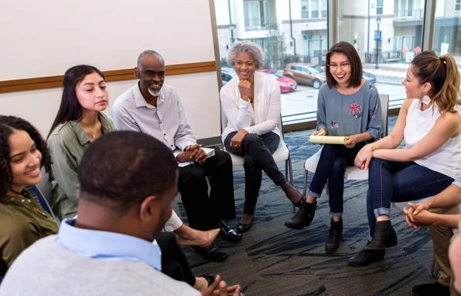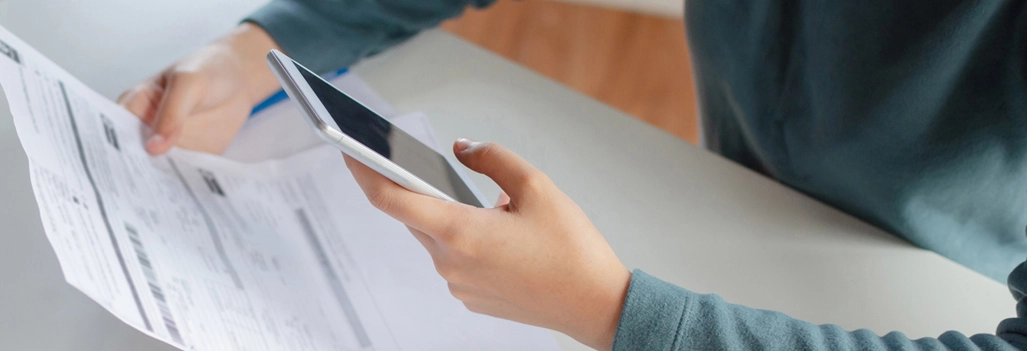Drug and alcohol rehab services in Los Angeles play an essential role in restoring stability in the life of residents who are suffering from an addiction. Patients and their families are guided through different phases of recovery with the help of trained professionals who are well-versed in addiction rehabilitation.
On this page, we will present you with the options available in Los Angeles, CA and what you might want to look out for when looking for an alcohol and drug rehab in the area.
What is Addiction Rehab (Rehabilitation)?
Addiction rehabilitation is a process of restoring the mental and physical health of a person affected by addiction.
The rehabilitation process begins with detoxification, which is the removal of addictive substances from the body. Detox can be achieved with the help of medication. After detoxification, the next step is rehabilitation itself. This process usually includes treatment for any underlying mental health conditions and relapse prevention techniques to prepare for living in abstinence after rehab.
Addiction is a process that occurs when the brain’s reward system is changed due to excessive use of drugs or alcohol. The method of rehabilitation can be difficult for some people to get through because it requires physical changes in the brain to stop the craving for drugs or alcohol.

Facts & Statistics about Addiction in Los Angeles
Prevalence of Substance Use Disorder, by Drug Type
(IN THOUSANDS)
- 2,7578.5%Any Substance
- 2,0886.4%Alcohol
- 1,0683.3%Ilicit Drugs
- 2060.6%Pain Medication
Drug- and Alcohol-Induced Deaths by Age Group, California, 2016
- Alcohol-Induced
- Drug-Induced
- 18 to 250.5
- 9.6
- 26 to 354.3
- 13.9
- 36 to 6424.2
- 22.9
- 65+23.7
- 9.4
Drug Use, by Selected Type and Age Group California, 2015 to 2016
- 12 to 17
- 18 to 25
- 26+
- Marijuana*13.2%
- 34.0%
- 13.5%
- Misuse of Pain Medications3.5%
- 8.0%
- 4.3%
- Cocaine0.8%
- 7.2%
- 1.8%
- Heroin0%
- 0.4%
- 0.2%
What are the treatment options available in Los Angeles?
The most treatment options for addiction are inpatient and outpatient care. Whether you’re in Los Angeles or elsewhere, this will be the first decision you make – do you want to stay at a residential facility.
Treatment programs are designed to help people detoxify from alcohol or drug abuse, stabilize them on a less harmful substance, address any co-occurring mental disorders, provide counseling and therapy to help with behavioral changes, and gradually prepare them for living without drugs or alcohol.
There are state-funded and non-profit charities like UCEPP and Central City Transitional Recovery Los Angeles if you are unable to afford the private centers.
There are many free therapy programs and community groups for those who are battling an addiction to drugs or alcohol. Alcoholics Anonymous (AA), Narcotics Anonymous (NA) and Cocaine Anonymous (CA) offer support services and fellowship meetings – options you may want to consider for your recovery.

Private Residential Programs
Private residential programs are an alternative to standard outpatient treatment. The main difference is that the resident lives on the premises and does not need to commute each day. Residential treatment can provide a “restorative” experience for individuals struggling with addiction. The focus is on building self-awareness, coping skills, improved communication skills, and more in a safe environment.
There are three main types of private residential programs in the Los Angeles area: Therapeutic boarding schools, therapeutic wilderness programs, and in-home care. Residential programs provide a full spectrum of care that includes therapy, education, meals, housing and medical care; some offer recreation in the form of horseback riding, golf and swimming.
Private residential programs offer a homelike environment for those struggling with addiction, mental illness or other serious conditions as an alternative to standard treatment options. It is important for those seeking addiction help to explore these different options as they may prove more beneficial than what is available locally.
Call us now for immediate admission
Tailored rehab for your successful recovery

Sober Living Programs
Sober living facilities offer a holistic approach to recovery. They offer comprehensive support for recovering addicts that includes group therapy, sober living houses, case management, and sober living apartments. Sober houses provide ongoing support for those that need long-term support.
Sober living facilities are an essential component of the recovery process because they offer comprehensive support in one location, with various levels of care available to all who need it.
A sober house is a perfect place for some people to heal from addiction and learn how to live a healthy lifestyle free from drugs or alcohol while maintaining a supportive community of others in recovery.
Outpatient Programs
Inpatient drug rehab and alcohol addiction services provide a more intense level of care, often with a higher level of supervision. Outpatient services are less intense, and treatments typically have shorter durations. Private counselling is more expensive than the state-funded options, so free talk therapy from an online service would be a great alternative to those who cannot afford full-time private therapies.
Many people find that outpatient treatments are better-suited because they can attend work, school, or take care of their children during treatment. The programs provide an opportunity to find out if there is a need for any follow-up care after completing a treatment program.
The limits of outpatient care are that there is a much greater risk of relapsing after only a few weeks. Patients must be given all the support they need to ensure continued recovery.
Detox Only Programs
Detox-only programs are a type of addiction treatment that focuses on the withdrawal and cleansing of the body. A person can have physical and mental dependency on drugs or alcohol. The detoxification process will help with removing substances from a patient’s body.
A detoxification program is a process that is used to clean the body of unwanted toxins, among other substances. This can be done with or without medication. The pros of a detox-only addiction treatment program are that it’s cost-effective and takes less time than a complete detox and rehab treatment. The major drawback to this type of program is that it doesn’t focus on the emotional or mental factors that may have contributed to substance abuse; often leading to relapses.
Paying for Private Treatment
There is a reason why people choose to go to rehab over staying at home. Even if they don’t have the money to pay for private rehabilitation, they will still get the help they need.
The majority of people don’t know that their health insurance will cover addiction rehab costs if stated in their policy. Some insurance providers will even cover residential treatment if you stay within your network provider and use one of their facilities or doctors.
Consult with your chosen Los Angeles drug and alcohol rehab provider and your insurer to make sure you’re aware of all policy benefits.
Find out if you’re eligible through private health insurance
State Funded Programs
According to statistics from the National Center for Drug Abuse Statistics (NCDAS), approximately 22.9 million people in the United States abuse alcohol or other drugs. Addiction to drugs and alcohol can be dangerous to one’s health and life if left untreated. People who struggle with addiction, and cannot pay for private help alone, can find funding or government-assisted programs a reliable alternative.
There are many state-funded drug and alcohol rehabilitation centers in LA County, but not all offer the same services. Some only focus on substance abuse, while others offer various addiction treatment services to help their patients recover from addiction – from vocational training to mental health counseling.
Los Angeles state-funded addiction programs can use a holistic approach to care for their patients by providing counseling, group therapy sessions and aftercare. The goal is to get not only clean but also stay sober.
The following state-funded addiction rehab programs are available in Los Angeles County:

VA Los Angeles Ambulatory Care Center Addictive Behaviors Clinic
351 East Temple Street, Unit 11-C, Los Angeles, CA 90012
Sunday: 10:00 am. 213-253-2677 x 23011
www.losangeles.va.gov/servicesUnited American Indian Involvement
1125 West 6th Street, Suite 103, Los Angeles, CA 90017
Wednesday: 7:00 am. (213) 202-3970
https://uaii.org/Volunteers of America Central City Recovery
3600 Wilshire Blvd, Suite 1500 Los Angeles, CA 90010
Wednesday: 7:00 am. (213) 389-1500
https://voala.org/services/adults/
Maintaining Addiction Recovery in Los Angeles
Addiction is a hard cycle to break, and keeping in recovery without relapse is crucial. Recovery and the journey to it can be an emotional rollercoaster that will take many steps to get through.
To stay sober, focus on living life as a sober person. Factors in staying sober include mental health, maintaining relationships and being active in your community.
The Los Angeles area offers many programs for those who want to maintain their sobriety. Help and guidance are available from alcohol and drug addiction treatment centers located all over the county. These programs offer various treatment options to help recover from addiction and live a life free of drugs and alcohol.
The following AA/NA meetings are available in Los Angeles
Gratitude Meeting
Meets on Zoom Id: 7948175359, Los Angeles, CA, 90066
Sunday: 10:00 am.
https://todayna.org/socal-meetings/What Makes Us Happy
In Person Meeting: 4038 W Martin Luther King Jr Blvd, Los Angeles, CA 90016
Wednesday: 7:00 am.
https://lacoaa.org/meeting-details.php?id=2340Shivering Denizens
In Person Meeting: 2900 Sunset Blvd, Los Angeles, CA 90026
Wednesday: 7:00 am.
https://lacoaa.org/meeting-details.php?id=7987
Aftercare & Alumni Programs
Many rehabs provide aftercare and alumni recovery networks for those that choose residential treatment.
Aftercare includes group and individual counseling sessions, support groups, and family counseling. Some programs may also offer vocational rehabilitation services such as career counseling, job search assistance, interview coaching, resume preparation and job placement.
The most successful aftercare programs provide care for their alumni with a sense of belonging to a dedicated community dedicated to continued sobriety. Programs often encourage participation in sober events and creative sessions.
Support Groups (Fellowship Meetings)
Support groups and fellowship meetings are common ways for people to find camaraderie and support in their recovery journey. There are two main types of support groups for people suffering from addiction, namely Alcoholics Anonymous (AA) and Narcotics Anonymous (NA). Both offer a safe space to share struggles, talk about different experiences related to addiction, triggers, cravings and everyday stressors, turn to each other for encouragement and work towards recovery together.
These channels offer help either in person or online because everyone needs some form of support during their recovery process.
AA and NA offer 12-step programs for recovering alcoholics and addicts, respectively.

Support for Families & Children Affected by Addiction
The impact of addiction on families and children is one of the most difficult challenges to overcome. Addiction affects not only the one experiencing the condition but also their families and loved ones. It can lead to neglect for children and spouses or to food deprivation due to wrongly prioritizing expenses toward a dependency. It can lead to violence in the home and even death. The emotional toll is often destructive for both parents and the children who are impacted by the addiction.
Many organizations provide support to families affected by addiction. Groups like Families Anonymous, Al-Anon, Nar-Anon, Alcoholics Anonymous, Adult Children of Alcoholics are examples. These groups are free to join and provide resources for families to recover from addiction together.










